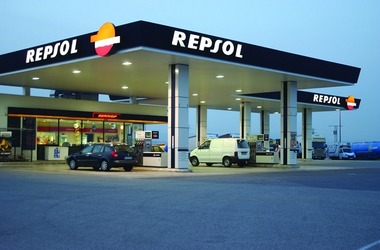
Recently, another company announced a successful blockchain trial run. Repsol, an energy company based in Madrid, trialed a blockchain platform to enhance the quality of general safety certification of its products. And, thankfully, the trial was a tremendous success.
Repsol was established in 1987 and is categorized as one of the top power companies. The company operates primarily in the oil and gas industry, which also involves oil and natural gas exploration, development and production. According to the Financial Times, Repsol ‘s net income amounted to EUR 2.7 billion in the first nine months of last year, which implies that it soared by 37 percent on y-o-y basis.
The blockchain solution was simply a collaborative effort between the Repsol Technology Lab Research Center (Tech Lab) and the blockchain software company Finboot, which is officially part of the Entrepreneurs Fund of the Repsol Foundation. The reason the firm tested the blockchain technology was to enhance the certification process for petrochemical products and services in particular.
The blockchain solution is anticipated to allow Repsol to categorise and monitor samples and products throughout the entire manufacturing process. In addition, the company expects that the employment of blockchain saves them up to EUR 400,000 per year due to a drop in error periodicity.
Regarding room for advancement, Tomas M. Malango, manager of experimentation at the Tech Lab, said “This type of procedures, in which we handle a large number of samples, are subject to many rework incidents due to mislabelling, loss or incorrect connection of information.”
He also thinks that the beneficial outcomes of the trial run by the blockchain pilot of Repsol could even be delivered to other departments, as it could possibly offer solutions for departments with comparable deficiencies.
Although blockchain is reasonably popular throughout the world, it has attained a wider reach in Spain. Notably, yesterday, another Spanish company Iberdrola started using blockchain software to monitor renewable energy sources.
During the trial, the firm tracked the renewable energy supplied to banks’ offices in the Basque Country and the southern city of Cordoba from two wind turbines and one power plant.
And the pilot was also a spectacular success, according to news reports. 2019 might just be the year in which many of Spain’s key companies switch to blockchain-driven solutions. Stay tuned to BlockPublisher for more details.